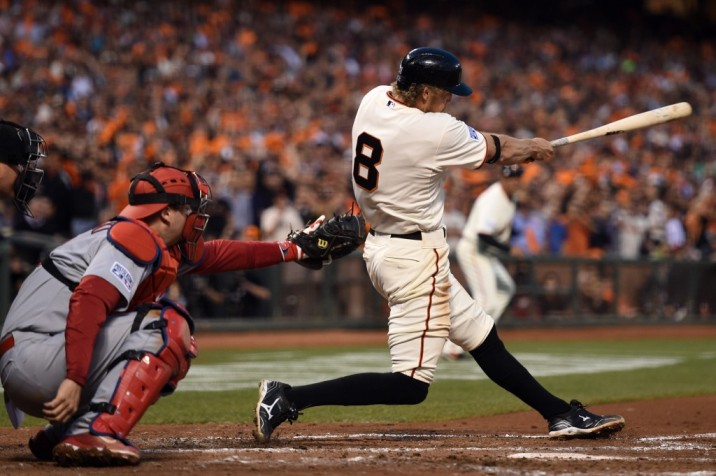Major League Baseball captivates fans with its rich history and cultural significance in American sports, showcasing legendary players, iconic moments, and enduring rivalries. From Babe Ruth’s home runs to Jackie Robinson’s groundbreaking debut, MLB’s evolution is marked by milestones that foster community and passion. Discover the stories, teams, and achievements that define this enduring American pastime.
Major League Baseball: Celebrating Iconic Moments and Enduring Traditions

Major League Baseball, a cornerstone of American sports culture, captivates millions with its rich history and thrilling games, paralleling the cultural significance seen in serie nacional del beisbol cubana. From the crack of the bat to the roar of the crowd, MLB offers a unique blend of tradition and excitement, reminiscent of the energy found in the nippon professional baseball league. As we dive into the world of baseball, we uncover the stories behind legendary players, iconic teams, and unforgettable moments that have shaped the game.
Our fascination with MLB isn’t just about the statistics or the standings; it’s about the passion and dedication that fuel the sport. Whether we’re cheering for a home run or marveling at a pitcher’s skill, baseball connects us to a shared heritage. As we explore the nuances of Major League Baseball, we celebrate not just the game, but the community it fosters and the memories it creates.
Key Takeaways
- Rich History and Evolution: Major League Baseball (MLB) traces its origins back to the 19th century, evolving from organized early games to a professional league that reflects significant cultural milestones, including racial integration and pivotal rule changes.
- Key Milestones: Historic events such as the formation of the American League, the first World Series, and the breaking of the color barrier by Jackie Robinson are pivotal in shaping the modern dynamics of MLB.
- Structure and Competition: MLB consists of 30 teams divided into the American League and National League, each with distinct divisions, promoting a competitive environment across a grueling 162-game season.
- Influential Figures: Legendary players like Babe Ruth and Willie Mays, along with transformative managers, have left lasting impacts on MLB, contributing to its rich narrative and competitive spirit.
- Modern Popularity and Challenges: MLB enjoys robust domestic and global reach, with broadcasts and streaming expanding its audience. However, it faces challenges like maintaining fan engagement and managing player health.
- Memorable Moments: Iconic events, such as Jackie Robinson’s integration into MLB and historic games marked by dramatic achievements, continue to captivate fans and highlight baseball’s dynamic history.
History of Major League Baseball
Major League Baseball (MLB) has a storied past that traces back to the mid-19th century, reflecting its evolution and enduring impact on American culture.
| Year/Event | Description |
|---|---|
| June 19, 1846 | First official game of baseball played in New Jersey. |
| 1871 | Formation of the National Association of Professional Base Ball Players. |
| 1901 | Creation of the American League, complementing the National League. |
| 1903 | First World Series held between the Boston Red Sox and Pittsburgh Pirates. |
| 1947 | Jackie Robinson breaks the color barrier, joining the Brooklyn Dodgers. |
| 1973 | Introduction of the designated hitter rule in the American League. |
The Formation and Early Years
Organized baseball began with the first official game on June 19, 1846, in New Jersey. While the exact origins are debated, figures like Abner Doubleday, Alexander Joy Cartwright, and Daniel “Doc” Adams are often credited with its development. The rules were formalized in 1857, introducing the nine players and nine innings format still in use. In 1869, professional baseball took off with the Cincinnati Red Stockings, the first professional team, playing their inaugural match against the Great Westerns of Cincinnati. The formation of the National Association of Professional Base Ball Players in 1871 marked a split between professional and amateur baseball, setting the stage for the modern National League.
Key Milestones and Events
Over the years, many milestones and events have shaped MLB. The creation of the American League in 1901 complemented the National League, leading to the first World Series in 1903. Jackie Robinson broke the color barrier in 1947, becoming the first African American player in MLB, a pivotal moment in sports and civil rights history, much like the transformative impact of figures in the roberto clemente professional baseball league. The introduction of the designated hitter in the American League in 1973 added a new strategic dimension to the game. These events and many others showcase the dynamic evolution of Major League Baseball and its profound cultural significance.
Structure and Teams
Major League Baseball, the pinnacle of professional baseball in North America, consists of 30 teams. These teams are divided into two distinct leagues: the American League (AL) and the National League (NL).
| Component | Details |
|---|---|
| Number of Teams | 30 teams divided into the American League (AL) and the National League (NL). |
| Divisions | Each league has three divisions: East, Central, and West. |
| Season Length | Teams compete in a 162-game season. |
| Notable Teams | New York Yankees (AL), Los Angeles Dodgers (NL), among others with rich competitive history. |
| League Structure Evolution | Originated with fewer teams; expanded throughout the 20th and 21st centuries. |
American League vs. National League
The National League, founded in 1876, and the American League, established in 1901, create the backbone of MLB. Historically, they operated as separate entities until they signed the National Agreement in 1903, which led to MLB’s modern structure. Each league consists of 15 teams divided into three divisions: East, Central, and West, leading to an organized competition framework that determines postseason contenders.
Expansion and Current Teams
Originally, MLB began with a smaller number of teams, but significant expansion occurred over the 20th and early 21st centuries. Presently, the league holds 30 teams, each league comprising 15 teams across three divisions. This structure allows competitive balance as teams vie for playoff berths during the grueling 162-game season. Teams like the New York Yankees (AL) and the Los Angeles Dodgers (NL) showcase the rich competitive history and dynamic nature of MLB, similar to the legacy carried by the australian baseball league.
Iconic Players and Figures
In the annals of Major League Baseball, a select group of players and figures stand out for their extraordinary contributions to the sport. These individuals have left indelible marks on baseball history and culture.
| Player | Achievements and Legacy |
|---|---|
| Babe Ruth | Revolutionized power hitting; set a single-season record of 60 home runs in 1927. |
| Willie Mays | Known for his all-around excellence; 660 home runs, 12 Gold Glove Awards. |
| Joe DiMaggio | Famous for his 56-game hitting streak in 1941; contributed to multiple Yankees’ titles. |
| Jackie Robinson | Broke MLB’s color barrier in 1947, paving the way for racial integration in sports. |
Legendary Players
Babe Ruth, often considered one of the greatest baseball players of all time, redefined the art of power hitting. Playing for the Boston Red Sox and New York Yankees from 1914 to 1935, Ruth set numerous records; most notably, his 60 home runs in 1927 stood as the single-season benchmark for decades. Under his influence, the Yankees secured four World Series titles, solidifying his legacy as a baseball legend and one of the inaugural members of the Baseball Hall of Fame in 1936.
Willie Mays, affectionately known as “The Say Hey Kid,” showcased outstanding all-around skills with the New York and San Francisco Giants from 1951 to 1973. Mays is celebrated for his 3,283 hits, 660 home runs, and 1,903 RBIs—a testament to his balanced excellence in hitting, fielding, and baserunning. With 12 consecutive Gold Glove Awards, two MVP awards, and 20 All-Star appearances, Mays remains an enduring symbol of baseball’s competitive spirit.
Joe DiMaggio is famous for his remarkable 56-game hitting streak in 1941, a record still unbroken. Spending his entire 13-year career with the New York Yankees from 1936 to 1951, DiMaggio earned his place among the sport’s giants, contributing to multiple World Series victories and iconic moments that continue to inspire baseball enthusiasts globally.
Influential Managers and Executives
In baseball, visionary managers and executives shape teams and influence the game profoundly. Their strategic acumen, leadership abilities, and innovative ideas have been crucial in transforming MLB teams into powerhouses of talent and fostering the sport’s overall evolution.
Under Casey Stengel’s management, the New York Yankees achieved an unprecedented five consecutive World Series titles from 1949 to 1953. His tactical insight and charismatic leadership style brought out the best in players, reinforcing his reputation as one of MLB’s greatest managers. As we further explore definitive figures, we recognize how expert management and strategic decisions continue to propel teams toward success.
Major League Baseball Today
Major League Baseball (MLB) stands as one of the cornerstones of American sports culture, continuing to captivate audiences both domestically and internationally. Its presence spans multiple platforms and reaches millions of fans.
Popularity and Global Reach
MLB attracts large audiences in the United States, with games broadcast on major networks like ESPN and FOX. Fantasy baseball platforms and online streaming services, such as ESPN+ and MLB.TV, further boost domestic engagement. Internationally, MLB expands its reach by hosting games in countries including Japan, the UK, and Mexico. The World Baseball Classic, an international tournament organized by MLB, enhances global visibility for the sport and highlights its universal appeal.
Recent Developments and Challenges
In 2024, the Los Angeles Dodgers claimed their eighth World Series title by defeating the New York Yankees 4-1. This latest victory underscores MLB’s competitive nature and the continued prominence of iconic teams. However, MLB faces challenges like maintaining consistent fan engagement and addressing issues related to player health and safety during the season. Addressing these concerns is crucial for sustaining the league’s popularity and ensuring its growth.
Memorable Moments in MLB History
Major League Baseball has produced numerous unforgettable moments, captivating fans across generations. These instances not only shape the game’s legacy but also remind us of its dynamic history.
| Event | Description |
|---|---|
| Jackie Robinson’s Debut (1947) | First African American MLB player, joining the Brooklyn Dodgers; a milestone in civil rights. |
| Bobby Thomson’s “Shot Heard ‘Round the World” (1951) | Thomson’s walk-off home run secured the NL pennant for the New York Giants. |
| Kirk Gibson’s 1988 World Series Homer | Despite injuries, hit a walk-off home run for the Dodgers in Game 1 against the Athletics. |
| Bill Mazeroski’s 1960 Walk-Off | First-ever World Series-winning walk-off home run for the Pittsburgh Pirates in Game 7. |
Jackie Robinson Breaks the Color Barrier
On April 15, 1947, Jackie Robinson became the first African American player in MLB by joining the Brooklyn Dodgers. This courageous step challenged racial segregation and opened doors for athletes of all backgrounds. Robinson’s debut remains a pivotal moment, symbolizing both progress and the unifying power of sports.
Bobby Thomson’s “Shot Heard ‘Round the World”
On October 3, 1951, Bobby Thomson hit a walk-off home run against the Brooklyn Dodgers, clinching the National League pennant for the New York Giants. This dramatic hit, known as the “Shot Heard ‘Round the World,” exemplified the excitement and unpredictability in MLB. Fans still remember the energy and emotion of that game.
Kirk Gibson’s Pinch-Hit World Series Homer
In Game 1 of the 1988 World Series, Kirk Gibson hit an iconic walk-off home run for the Los Angeles Dodgers against the Oakland Athletics, despite his injuries, embodying the type of dramatic moments also celebrated in the mexican pacific baseball league. This moment showcased the grit and determination inherent in MLB. Gibson’s unexpected heroics continue to inspire players and fans alike.
Bill Mazeroski’s 1960 World Series Walk Off
Bill Mazeroski secured a remarkable victory for the Pittsburgh Pirates with a walk-off home run in Game 7 of the 1960 World Series against the New York Yankees. His feat marked the first World Series won with a walk-off homer, highlighting the dramatic nature of baseball’s highest stage. Mazeroski’s legendary hit endures as a testament to underdog triumphs in MLB history.
Historic Games and Rivalries
MLB features epic clashes and rivalries that captivate fans. The Red Sox-Yankees rivalry, often considered one of the fiercest in sports, draws immense attention every season. Their battles reflect traditional power struggles and intense competition. Another unforgettable historic game occurred in 1975, when the Red Sox faced the Cincinnati Reds in the World Series. Carlton Fisk’s iconic home run in Game 6, which forced the series to a decisive seventh game, remains a symbol of perseverance and excitement.
Record-Breaking Achievements
Baseball’s history sees players shattering records through extraordinary skill. In 1974, Hank Aaron broke Babe Ruth’s long-standing home run record by hitting his 715th home run. This achievement wasn’t just about surpassing an individual milestone; it also represented resilience amid societal challenges. In 2001, Barry Bonds set the new single-season home run record with 73 homers, showcasing unprecedented power and technique. Meanwhile, with his 56-game hitting streak in 1941, Joe DiMaggio set a record that remains unbroken to this day. These milestones celebrate human potential and set benchmarks for future generations.
Conclusion
Major League Baseball stands as a testament to the enduring spirit and passion that define American sports culture. Its storied history and vibrant present continue to inspire and unite fans around the world. As we celebrate the legendary players and unforgettable moments that have shaped the game, we also look forward to the future of MLB with anticipation. The challenges ahead, from maintaining fan engagement to ensuring player safety, are opportunities for growth and innovation. Together, let’s cherish the rich legacy of baseball and embrace the exciting possibilities that lie ahead for this beloved sport.
Frequently Asked Questions
What is the historical significance of Major League Baseball (MLB) in American sports culture?
MLB holds significant historical importance as it reflects the evolution of American sports culture. Originating in the mid-19th century, baseball has been defined by its legendary players, iconic teams, and memorable moments. These elements, along with the passion and dedication of the fans, have made baseball a cornerstone of community building in America.
How did MLB originate, and what were some key milestones in its development?
MLB originated in the mid-19th century, with its first official game played in 1846. Key milestones include the formation of the National Association of Professional Base Ball Players in 1871, the establishment of the American League in 1901, Jackie Robinson breaking the color barrier in 1947, and the introduction of the designated hitter in 1973.
How is MLB currently structured?
MLB consists of 30 teams divided into two leagues: the American League (AL) and the National League (NL). Each league is organized into three divisions. This structure supports a competitive season of 162 games, drawing millions of fans and showcasing teams like the New York Yankees and Los Angeles Dodgers.
Who are some legendary MLB players mentioned in the article?
The article highlights legendary players such as Babe Ruth, known for his power hitting, Willie Mays for his all-around excellence, and Joe DiMaggio for his record 56-game hitting streak. These players have made extraordinary contributions, leaving lasting legacies in the sport.
What challenges does MLB face today?
MLB faces challenges such as maintaining fan engagement and ensuring player health and safety. Despite its popularity, the league must adapt to changing audience preferences and technological advancements to sustain its growth and relevance globally.
What are some of the most memorable moments in MLB history?
Memorable moments in MLB history include Jackie Robinson’s debut in 1947, Bobby Thomson’s “Shot Heard ‘Round the World” in 1951, and Kirk Gibson’s remarkable homer in the 1988 World Series. These events have captivated fans across generations, highlighting baseball’s dramatic and emotional nature.


